Archive for the ‘Blog’ Category
16 March, 2013
3 Compelling Workshops You Won’t Want to Miss
Tracey
In our February blog post Get a Glimpse of the Workshops in Store for CES Toronto 2013 we spoke about the range of workshops available for evaluation conference delegates at every level in the field. Well, this week we’re highlighting three more workshops as examples of how we’ve fulfilled that promise to you. One is a workshop aimed at people just starting out in their evaluation careers; another is pitched at intermediate level and, for the well-established, we have a solid, meaty session that will really stimulate your mental processes.
An Executive Summary is Not Enough
with Kylie Hutchinson
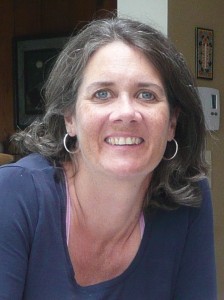 This beginner-level, morning workshop will help wake you up with an in-depth look at the importance of reporting skills and the best ways to communicate the results of an evaluation. Presenter Kylie Hutchinson will offer an overview of the three key principles for reporting results effectively, and you’ll be able to participate in discussing the role of communications and reporting in good evaluation practice and to work in groups on a real-life example. Afterwards, you’ll leave with an expanded repertoire of four innovative reporting techniques. The workshop will address the following evaluation competencies:
This beginner-level, morning workshop will help wake you up with an in-depth look at the importance of reporting skills and the best ways to communicate the results of an evaluation. Presenter Kylie Hutchinson will offer an overview of the three key principles for reporting results effectively, and you’ll be able to participate in discussing the role of communications and reporting in good evaluation practice and to work in groups on a real-life example. Afterwards, you’ll leave with an expanded repertoire of four innovative reporting techniques. The workshop will address the following evaluation competencies:
- Technical Practice 2.16
- Situational Practice 3.5, 3.6
Kylie Hutchinson is an evaluation consultant with a strong background in training, facilitation and eLearning. She works closely with the Public Health Agency of Canada and the UBC School of Population and Public Health, and is on the faculty of the Justice Institute of BC’s Instructor Development Program.
Causal Inference for Qualitative and Mixed Methods
with E. Jane Davidson
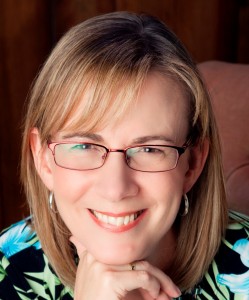 “Causation: The relation between mosquitoes and mosquito bites. Easily understood by both parties but never satisfactorily defined by philosophers and scientists.” – Scriven (1991).
“Causation: The relation between mosquitoes and mosquito bites. Easily understood by both parties but never satisfactorily defined by philosophers and scientists.” – Scriven (1991).
This full-day, intermediate level workshop aims to deliver eight practical strategies to build an evidence base for getting an answer to the question of causal inference – albeit an approximate one. Delegates will learn how to build causal elements into interview and survey questions and to use a range of sources to build the case for causal contribution.
Delivered by Dr. E. Jane Davidson, the workshop will address the evaluation competencies of:
- Technical Practice 2.1, 2.6, 2.7
Dr. E. Jane Davidson is the author of several books on evaluation methodologies as well as co-author of the blog GenuineEvaluation.com. She delivers international keynote addresses and professional development workshops online and won the American Evaluation Association’s Marcia Guttentag Award in 2005.
Processes of Learning in a Developmental Evaluation
with Wendy Rowe & Keiko Kuji-Shikatani
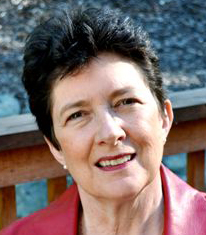 “Developmental Evaluation refers to long-term, partnering relationships between evaluators and those engaged in innovative initiatives and development. Developmental evaluation processes include asking evaluative questions and gathering information to provide feedback and support developmental decision-making and course corrections along the emergent path.” Michael Quinn Patton
“Developmental Evaluation refers to long-term, partnering relationships between evaluators and those engaged in innovative initiatives and development. Developmental evaluation processes include asking evaluative questions and gathering information to provide feedback and support developmental decision-making and course corrections along the emergent path.” Michael Quinn Patton
This workshop will provide an overview of the principles of Developmental Evaluation and introduce process learning tools that have been used by seasoned evaluators to guide the development, sustainability and effectiveness of the program intervention.
You will learn:
- How to attend to the unique interests, emergent issues, and complex contextual circumstances.
- How to decipher and infuse evaluative thinking by applying and embedding technical and management practice competencies into the work cycle, evaluation design, data collection, analysis, interpretation and reporting.
- How to apply Reflective Practice competencies as an intervention to facilitate the process of learning
Evaluation competencies to be addressed include:
- Situation Practice 3.2, 3.3, 3.8
Dr. Wendy Rowe is a professor in the School of Leadership. She teaches evaluative inquiry and performance measurement and is an experienced facilitator in program evaluation. She works with organizations to enhance their performance and capabilities.
Dr. Keiko Kuji-Shikatani facilitates job-embedded professional learning on a daily basis in the Public Sector using a logic model as a tool for infusing evaluative thinking and to guide developmental evaluation and has provided professional learning workshops on Developmental Evaluation to various audiences in Canada and internationally.
View the full list of workshops planned for CES Toronto 2013 or take in the video and audio messages from some of our presenters and make your choice ahead of time. Follow us on LinkedIn,Facebook, Twitter, YouTube and Google+, or subscribe to our bilingual Conference Newsletter.
7 March, 2013
Global Change Agent George Roter a Keynote at CES Toronto 2013
Tracey
The Engineers Without Borders’ co-founder and CEO is scheduled to deliver a keynote address at this year’s evaluation conference.
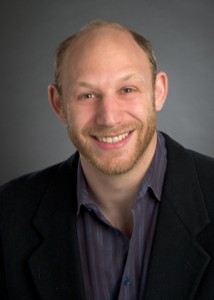 Intelligent development. That’s how Engineers Without Borders (EWB) views its social change programs that are working to accelerate rural African development. According to a February 2013 article in Forbes magazine, EWB’s CEO and co-founder George Roter has revolutionized engineering in Canada and built a global system-changing network supported by more than 45,000 engineers, volunteers, staff and entrepreneurs from all over the world that is impacting the lives of more than 2.5 million people in Africa.
Intelligent development. That’s how Engineers Without Borders (EWB) views its social change programs that are working to accelerate rural African development. According to a February 2013 article in Forbes magazine, EWB’s CEO and co-founder George Roter has revolutionized engineering in Canada and built a global system-changing network supported by more than 45,000 engineers, volunteers, staff and entrepreneurs from all over the world that is impacting the lives of more than 2.5 million people in Africa.
A New Way
George Roter believes in a new way of looking at issues. Inspired originally by the extreme poverty of people in Zambia and Malawi, Roter decided to address the problem at its root and find a way to resolve some of its manifestations, such as the absence of clean water. This led to the creation of EWB, whose purpose is to create opportunities and training for rural Africans that will result in the next generation having more favorable conditions for change and prosperity.. Roter previously spoke on redefining poverty at the third annual TEDxToronto conference in September of 2011.
Inspiring Change
Through EWB, Roter inspires an ever-growing network of leaders who are dedicated to making disruptive, positive change. He has been recognized as an Ashoka Fellow for Social Entrepreneurship (2012), was awarded the Young Leaders Award by the Public Policy Forum (2007), named as one of Canada’s Top 40 Under 40 (2005) and awarded an Action Canada Fellowship (2004) on public policy. Roter was also recognized by Time magazine as one of Canada’s next generation of social leaders (2001).
Transforming How We Work
Transparency and accountability are key to EWB’s culture. Speaking publicly about setbacks in their groundbreaking Failure Report, EWB is leading the way in creating a culture that openly discusses and critically learns from failures. Roter is looking forward to addressing the CES 2013 Toronto. “We have a huge opportunity for us to start thinking about evaluation as completely integrated with learning, with discovery, and with iteration,” says Roter. “If we do this, evaluation will not just be an exercise in accountability and report writing, but will truly unlock the potential of practitioners to deliver great work, and the potential of projects to be truly transformative.”
Watch this space for more information on workshops lined up for 2013, or subscribe to our bilingual Conference Newsletter and follow us on social media. You can find us on LinkedIn, Facebook, Twitter, YouTube and Google+.
26 February, 2013
Get a Glimpse of the Workshops in Store for CES Toronto 2013
Tracey
At this year’s Canadian Evaluation Conference, we’ll have a range of workshops on offer to whet the appetite of all our delegates. Whether you’re new in the field and just getting to grips with the science – and art! – of evaluation, or are intermediate level or a seasoned practitioner, there’ll be something to grab your attention. Here’s a taste of what we have in store for you:
Empowerment Evaluation
with Dr. David Fetterman
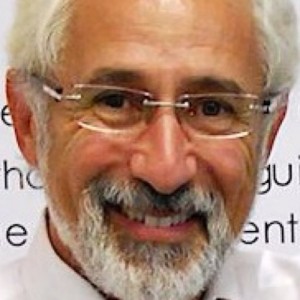 This beginner-level workshop presents the basics of empowerment evaluation. Delegates will have the opportunity to learn how to establish a mission, create a baseline and define the goals and strategies needed to achieve evaluation objectives. You’ll find out how to select the right tools for this type of evaluation and come away with an understanding of the key concepts guiding the approach. The workshop will address the following evaluation competencies:
This beginner-level workshop presents the basics of empowerment evaluation. Delegates will have the opportunity to learn how to establish a mission, create a baseline and define the goals and strategies needed to achieve evaluation objectives. You’ll find out how to select the right tools for this type of evaluation and come away with an understanding of the key concepts guiding the approach. The workshop will address the following evaluation competencies:
- Reflective Practice 1.3
- Situational Practice 3.6
- Interpersonal Practice 5.6
The workshop is presented by Dr. David Fetterman, who is the founder of empowerment evaluation as well as the author of several books on the topic. He also maintains a blog for the American Evaluation Association, of which he is a past president and the recipient of various awards.
View Dr. Fetterman’s video message about his presentation here
Conducting Research on Evaluation and Getting Published
with Dr. Robert Schwartz
While most evaluators recognize the worth of research, few actually conduct – and publish – research on evaluation, in spite of the substantive need for empirical research in the community. In this intermediate-level workshop, Dr. Robert Schwarz will present ways to conduct research on the topic, and delegates will learn how to do it using hands-on, experiential methods in small groups.
As the editor-in-chief of the Canadian Journal of Program Evaluation, Dr. Schwarz will leave attendees with a range of useful tips and guidance on preparing manuscripts for publication in peer-reviewed journals.
Seeking advice in handling more complex evaluation and survey design problems? Then you may be drawn to this half-day workshop:
Advanced Issues in Evaluation Survey Research and Design
with Benoit Gauthier and Dr. Simon Roy
During this workshop, the presenters will offer four topics for review and discussion, which are:
- Moving from the evaluation framework to planning the survey (i.e. operationalization of concepts, sampling, scales, budgeting);
- Ensuring the meaning of questions is shared (i.e. pretesting and translation);
- Approaches to enhancing response rates; and,
- Assessing survey research conducted by others.
You can expect a short presentation on each of these topics followed by discuss of issues and solutions. You’ll be able to contribute your own experience and examples and apply critical thinking throughout the session.
This workshop will address evaluation competencies in Technical Practice 2.7, 2.9 and 2.13.
Both presenters are credentialed evaluators with outstanding careers in the field, and have co-authored several articles for the Canadian Journal of Program Evaluation. Dr. Roy developed the first CES Logic Model Course and co-authored the latest CES Survey Course. He teaches program evaluation and received the CESEF award for Contribution to Research on Evaluation Practice.
Watch this space for more information on workshops lined up for 2013, or subscribe to our bilingual Conference Newsletter and follow us on social media. You can find us on LinkedIn, Facebook, Twitter, YouTube and Google+.
7 February, 2013
Dr. Hallie Preskill to be Keynote Speaker at 2013 Evaluation Conference
Tracey
Evaluation great Dr. Hallie Preskill, who has spent her life at the intersection of evaluation, learning and change, will be a keynote speaker at the 2013 Canadian Evaluation Conference.
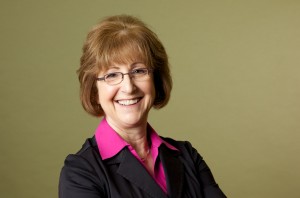 Strategy goes hand in hand with evaluation. The most effective program in the world can’t be completely successful unless the results can be measured against a comprehensive performance management system. Putting the systems in place is the legacy of evaluation giants like Hallie Preskill (PhD), who has spent her life providing evaluation, learning and training workshops and services for a range of organizations. These include healthcare, nonprofit, education, foundation, government, and corporate entities. Dr. Preskill will be a keynote speaker at the 2013 evaluation conference presented by the Canadian Evaluation Society.
Strategy goes hand in hand with evaluation. The most effective program in the world can’t be completely successful unless the results can be measured against a comprehensive performance management system. Putting the systems in place is the legacy of evaluation giants like Hallie Preskill (PhD), who has spent her life providing evaluation, learning and training workshops and services for a range of organizations. These include healthcare, nonprofit, education, foundation, government, and corporate entities. Dr. Preskill will be a keynote speaker at the 2013 evaluation conference presented by the Canadian Evaluation Society.
It’s Time, Says Hallie
“The time couldn’t be better for a conference devoted to Evaluation Across Boundaries,” says Dr. Preskill. “For evaluation to remain relevant, credible, and useful, it will have to adapt and change to new and emerging contexts and environments. This means that evaluators will need to think out of the box – we will need to expand our understandings and practices in ways that challenge conventional boundaries and the status quo. I am excited about what promises to be a thought provoking, stimulating, and boundary pushing event!”
Making a Difference
Hallie Preskill always wanted to make a difference. She believes in a world where evaluation is a social catalyst for change , where individuals, groups, communities and organizations learn constantly about and from evaluation. Dr. Preskill has held academic roles at three universities, where she shared her knowledge by teaching courses in programme evaluation, organizational learning, appreciative inquiry and training and organization development. It wasn’t enough, however, for Dr. Preskill. “While I always hoped I was making a difference through my teaching, research, and writing, I knew I wanted to make a different kind of difference,” she says.
Bringing Professionals Together
A member of the American Evaluation Association for many years, in 2007 Dr. Preskill became president of the organization. In her opening speech at that year’s conference in Baltimore, Maryland, she expressed the hope that the topic Evaluation and Learning would generate insights into the way evaluation facilitated learning and how capacity was developed. The conference brought together more than 2,500 evaluation practitioners, academics, and students, and represented a unique opportunity for attendees to meet with professional colleagues in a supportive, invigorating atmosphere.
Growing the Discipline
Two years later, in 2009, Dr. Preskill joined FSG (formerly the Foundation Strategy Group) as a member of the leadership team and managing director of the group’s strategic evaluation approach area. In this position, she leads a team of consultants in developing tools and resources to help grow the field of evaluation and provide expertise in healthcare, education, community engagement and human rights, among other topics.
“At FSG, I have the privilege of guiding our strategic learning and evaluation practice, through which we design and implement evaluations, evaluation systems, workshops, webinars, and organizational learning processes, in addition to building the field’s evaluation knowledge,” says Dr. Preskill.
Accolades
Dr. Preskill has authored and collaborated on a number of books, including:
- Becoming the Change (2011),
- Reframing Evaluation through Appreciative Inquiry (2006),
- Building Evaluation Capacity: 72 Activities for Teaching and Training (2005),
- Evaluation Strategies for Communicating and Reporting (1999, 2005), and
- Evaluation in Organizations: A Systematic Approach to Enhancing Learning, Performance & Change (2001, 2009).
Dr. Preskill has been awarded American Evaluation Association’s Alva and Gunnar Myrdal Award for Outstanding Professional Practice in 2002 and the University of Illinois Distinguished Alumni Award in 2004.
For more information about the 2013 Canadian evaluation conference, please click here to visit the website.
30 January, 2013
Share Your Knowledge: Present at the 2013 Canadian Evaluation Conference
Tracey
BREAKING NEWS!
We’ve Extended the Deadline
for submitting your presentation proposal for the 2013 Canadian Evaluation Conference! You now have until the 22nd of February to submit your proposal to Share Your Knowledge at our conference in June. Don’t miss out – submit your proposal now.
The evaluation conference held annually by the Canadian Evaluation Society (CES) convenes practitioners, innovators, policy-makers, program directors and managers, and other specialists from around the world who are actively engaged or interested in evaluation. We encourage you to be part of the evaluation conversation this year, by delivering a presentation. You’re invited to submit your proposal for consideration for this year’s CES conference before mid-February.
Theme
Conference presentations should be relevant to the 2013 theme of Evaluation Across Boundaries, in which we plan to look at ways of expanding and leveraging the Canadian experience to shape and influence the impact of interventions both locally and globally.
“This theme speaks to both conference structure as well as to encouraging thinking and conversation about ‘boundaries’ - whether they are theoretical, geographic, methodological or social,” says Dawn Campbell-Borland , Program Chair of the CES 2013 Conference. “This year’s national meeting aims to provide delegates with an opportunity to develop their practice, network, share and collaborate.”
But it is also a pause, says Campbell-Borland. “It’s a time to consider evaluation’s contributions (or not) to the communities we serve, and how we use and evolve evaluation practice to better inform decision-making, policy, affect positive change and influence and communicate the impacts of interventions across all audiences.”
This year, delegates will examine the relationship between evaluators and those evaluated, especially in the context of these four conference strands:
- Discovery – What are implications for individual skill-sets and aptitudes? What are impacts to approaches, methodologies, technologies and tools useful and relevant to individual practice and practice quality?
- Engagement - How can we make evaluation accessible across a whole region? What are implications for the diverse communities we serve?
- Outreach - What is our role in embedding evaluative thinking and evaluation in our organizations, networks and communities?
- Network building - How do we expand and leverage the Canadian experience to influence and shape governance in the local and global sphere beyond traditional borders and boundaries?
We’d like to see a mix of different presentation types at our 2013 evaluation conference. You may propose multiple presentations, as long as each submission aligns with a central topic within one of the strands.
Why Present?
Sharing our knowledge and experience is what makes the annual evaluation conference an event that benefits everyone in our profession who attends. It enables us to bounce ideas off other delegates in a positive environment and to get valuable feedback we can use. In addition, the presenters selected are guaranteed the early bird registration rate for the conference.
Selection Process and Notification
If you would like to submit a presentation proposal, you have until Friday 15 February at midnight to get it in, using the online abstract submission system. All proposals submitted will be rated by an independent evaluation conference review committee against the full list of criteria. Completeness and accuracy will count, as will the clarity of your proposal.
We will need to know your audio-visual requirements too for the purpose of delivering the presentation; equipment other than a data projector, PC laptop and screen need to be ordered and paid for by presenters.
The review committee will take account of the presenter’s background and experience, subject matter expertise and geographical location, so include a complete biography showing this information as well as former experience in addressing groups. The committee will make its final decisions known by the end of February and presenters selected can expect to be notified by the first week in March.
Check out our submission page for specific information for sending us your proposal. Don’t delay!
21 January, 2013
The Clock is Ticking! 2 Weeks Left to Submit Workshop Proposals
Tracey
The pre-conference workshops have been one of the highlights of the annual Canadian Evaluation Society’s (CES) conference for several years. Not only do these workshops give delegates a chance to settle in and change gears from their daily schedules, but they provide the opportunity for hands-on, interactive exploration of a variety of skills or knowledge areas. To that end, CES Toronto 2013 is currently calling for proposals for the June workshops, and you have two weeks left in which to get your submission in.
Focus on Professional Development
In a shift from previous years, the CES Toronto 2013 team is planning to offer more professional development workshops this year than were available before.
“One thing we can confidently boast about is our plan to offer at least 50% more PD workshops than were available in Halifax,” says Dayna Albert, chair of the 2013 workshop committee. To achieve this, says Albert, the team is pursuing a range of exciting topics and inspiring presenters for this year.
Feedback from Halifax 2012
During the annual conference in Halifax last year, workshop topics ranged from cleaning up evaluation data to mapping evaluation outcomes. The team has taken close account of CES members’ feedback gleaned from the 2012 membership survey. Based on the feedback, the 2013 conference expects to offer more intermediate and advanced level workshops, and is searching out and inviting various top-rated evaluation facilitators to submit proposals for 2013. This year, workshops will take place ahead of the conference on Sunday June 9th.
Submitting a Proposal
If you’re interested in submitting a proposal for a pre-conference workshop, you can visit the submission guidelines section of the CES Toronto 2013 website and download the necessary form for completion. Apart from entering your preferred time slot and workshop title, you’re required to specify the learning objectives and the prerequisite skills and knowledge, if any, that delegates need to participate.
We also ask you to include details such as:
- your subject matter expertise,
- your experience in facilitation,
- a brief outline of the subject matter content, and
- the proposed method of delivering the content.
Next Steps
Once we receive your proposal, our proposal review team will evaluate it in terms of the criteria listed on the submissions page.
“We’ll finalize our selection process and notify the facilitators by mid-February, at which time we’ll publish the list of workshops on our website,” says Albert. “Right now, anyone who believes they can add value to the CES Toronto 2013 conference should compile their submission and get it in to us before January 30th, 2013.”
To see workshops offered at previous conferences, click here and select the link to the conference program you want to view.
16 January, 2013
Toronto Hosts 34th Annual Evaluation Conference: Be a Part of It
Tracey
The Canadian Evaluation Society (CES) has been hosting conferences on the discipline of evaluation since 1980. From the very first event, held in May 1980 in Toronto, the aim of the annual conference has been to bring together thought leaders and practitioners to share and discuss the latest trends and issues in monitoring and evaluation. CES 2013 is no exception, as we set out in June this year to explore evaluation across boundaries in four specific areas.
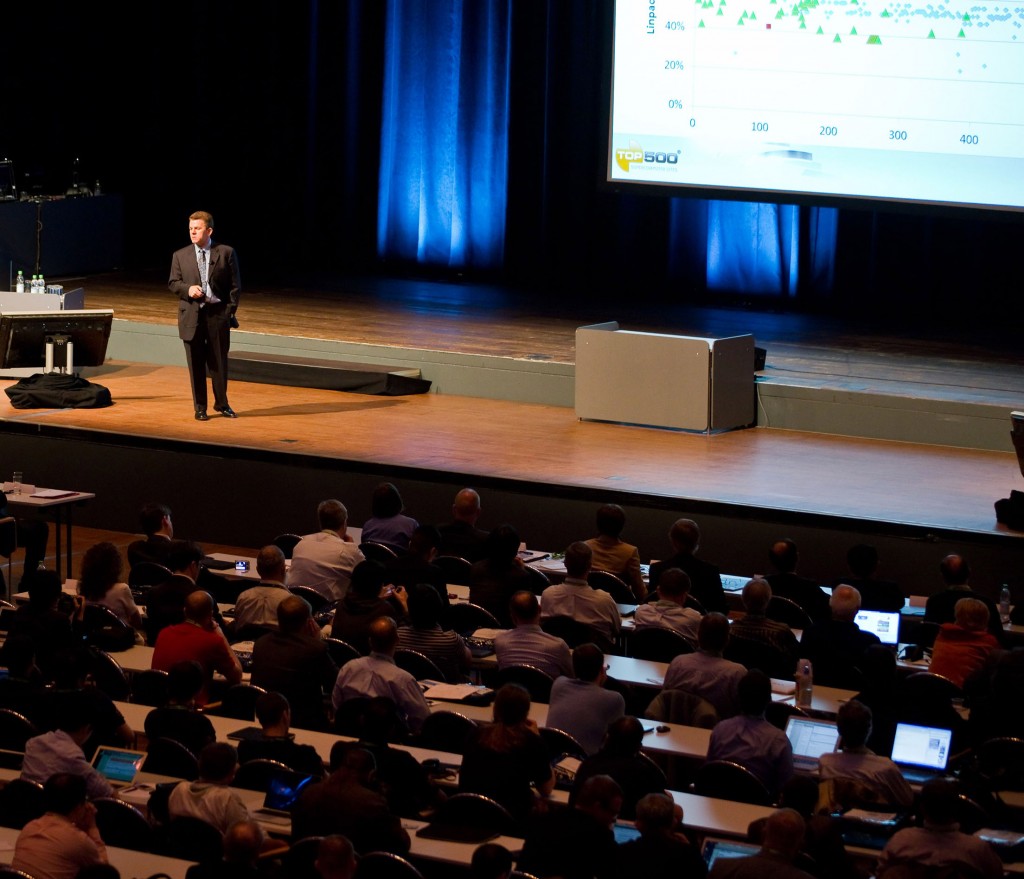
- The 34th annual evaluation conference will take place in Toronto
Former Conferences
Looking back on the past 34 years, we can see how the strands have woven together to bring us to this point. From the very first conference theme “Evaluation: The Canadian Challenge” the CES has been focused on the development and improvement of the theory, practice and use of monitoring and evaluation, and ways in which we can strengthen our profession.
During the second half of the 1980s, the emphasis shifted towards practicalities. Integrating evaluation with management practices took the attention of our delegates one year, while accountability and limited resources gave the nod to the difficult economy we were experiencing after the 1987 economic downturn. During the 1990s we dealt with issues of diversity and the changing face of program evaluation, as we raced towards the new millennium and all the challenges it presented.
Since the arrival of the new century, we’ve focused on a more holistic approach, such as:
▪ culture, community and the sharing of heritage
▪ transparency and accountability
▪ the value of diversity, and
▪ environmental sustainability
These monitoring and evaluation conferences took place in various centres, but we’ve never missed a year!
2013 Venue
This year, we’ll be holding the annual conference at Toronto’s iconic Fairmont Royal York hotel in early June. It’s a fitting setting for CES Toronto 2013; the hotel’s history is testament to the longevity of a well-run organization. With a strong environmental program in place, the Royal York is taking on the challenges of the second decade of the new millennium with ease and grace.
Be a Part of It
No, it’s not New York, New York like the song says – but if you want to be a part of it all the same, now’s your chance. CES Toronto 2013 will focus on four distinct conference strands:
▪ discovery
▪ engagement
▪ outreach
▪ networking
If you can offer an in-depth exploration of an evaluation-related skill or a specific area of knowledge, you’re invited to submit a proposal for one of the conference’s professional development workshops.
Submit Workshop Proposals
Workshop proposals are due at the end of January, so there’s no time to lose if you want to “be a part of it” as a facilitator. Visit the Workshop Submissions page for details and let us know what you have to offer the community. We’re looking particularly for workshops that focus on the broader issues of monitoring and evaluation methods, theories, policies and practices, and those that offer value to the wider evaluation community.
Follow us on Facebook and Twitter for regular postings in the run-up to the event, or sign up for our monthly eNewsletter for up-to-date news and information as it happens.

